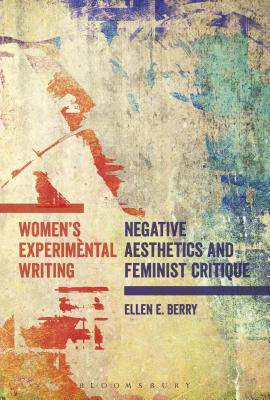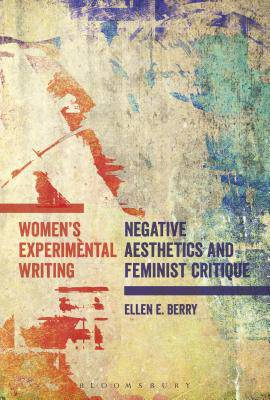
- Afhalen na 1 uur in een winkel met voorraad
- Gratis thuislevering in België vanaf € 30
- Ruim aanbod met 7 miljoen producten
- Afhalen na 1 uur in een winkel met voorraad
- Gratis thuislevering in België vanaf € 30
- Ruim aanbod met 7 miljoen producten
Zoeken
Women's Experimental Writing
Negative Aesthetics and Feminist Critique
Ellen E Berry
Hardcover | Engels
€ 296,95
+ 593 punten
Uitvoering
Omschrijving
Women's Experimental Writing considers six contemporary authors who use experimental methods and negative modes of critique in their fiction and feminism. The authors covered are Valerie Solanas, Kathy Acker, Theresa Cha, Chantel Chawaf, Jeanette Winterson, and Lynda Barry.
These writers all share a commitment to combining extreme content with formally radical techniques in order to enact varieties of gender, sex, race, class and nation-based experience that, they suggest, may only be "represented" accurately through the experimental unmaking of dominant structures of rationality. Ellen Berry extends the anti-social negative critique predominant in queer studies by offering an alternative archive of feminist negative literary practices and explores the consequences of joining an anti-social critique with radical innovations in literary and cultural forms. She argues that the radical aesthetic practices the authors employ are central to the emergence of contemporary Western feminisms and in doing so rectifies a critical neglect of contemporary experimental writing by women, especially in politicized forms, within the still-emerging postmodern canon.Specificaties
Betrokkenen
- Auteur(s):
- Uitgeverij:
Inhoud
- Aantal bladzijden:
- 184
- Taal:
- Engels
Eigenschappen
- Productcode (EAN):
- 9781474226400
- Verschijningsdatum:
- 19/05/2016
- Uitvoering:
- Hardcover
- Formaat:
- Genaaid
- Afmetingen:
- 156 mm x 234 mm
- Gewicht:
- 435 g

Alleen bij Standaard Boekhandel
+ 593 punten op je klantenkaart van Standaard Boekhandel
Beoordelingen
We publiceren alleen reviews die voldoen aan de voorwaarden voor reviews. Bekijk onze voorwaarden voor reviews.







